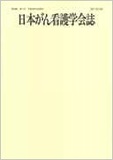Japanese
English
- 販売していません
- Abstract 文献概要
- 参考文献 Reference
要旨
目的:本研究の目的は,在宅療養中の高齢がん患者のがん疼痛の体験と方略を明らかにすることである.
方法:症状マネジメントモデル(Dodd, 2001)を概念枠組みとし,がん疼痛のある高齢がん患者を対象に,半構造的面接によりデータを収集し内容分析の手法を用い分析した.
結果:対象は高齢がん患者9名であった.がん疼痛の体験には,【がんがある限り痛みとは縁が切れない】【常に痛みを意識し暮らしの自立が妨げられる】【日々,暮らす中で,痛みの緩急のパターンが分かる】【失敗する体験から「無理できない範囲」を体得する】【指導されたとおりに鎮痛薬を使えていない】【暮らすうちに徐々に鎮痛薬の効果を体得する】の6カテゴリが抽出された.また,方略には,【体の感覚を頼りに痛みによいと思う方法を探り,試し続ける】【自分でできないと思ったことは,助けを求める】【これまでのとらえ方ややり方を変え,楽しみを見つけて過ごす】【体の感覚を指標に養生し,痛くならないよう備える】【医師に痛みが伝わるよう努める】【自分が感じたままに痛みを医師に伝えられない】【医師に任せる】の7カテゴリが抽出された.
考察:うまくいかなかった体験から無理できない範囲を体得し,よいと思う方法を試し続けるという方略は,在宅療養の場において,高齢がん患者が自立した生活を維持するために編み出した積極的方略ととらえ,支援することが必要である.
Objectives: The objective of the study is to clarify the experiences and management strategies of cancer pain in elderly patients with cancer under home health care.
Methods: Using Dodd's 2001 model of symptom management as the conceptual framework, we collected data from elderly patients with cancer pain through a semi-structured interview and performed content analysis.
Results: We identified the following six categories of cancer pain experiences: 1) experiencing pain as long as one has cancer, 2) being aware of pain limiting independence in daily life, 3) learning the pattern of pain fluctuations during daily life, 4) experiencing failure makes one stay in one's comfort zone, 5) failing to use analgesics as instructed, and 6) learning the effects of analgesics gradually during daily life activities. In addition, we identified the following seven categories of cancer pain management strategies for elderly cancer patients: 1) continuing to search for and try pain management methods that appear successful based on their own physical sensations, 2) asking for help when it seems impossible to manage on their own, 3) changing previous perspectives and methods and finding something enjoyable to do, 4) taking care of themselves based on their own physical sensations as a pain prevention indicator, 5) trying to communicate with their own physician about pain, 6) experiencing an inability to communicate with their physician because of not being able to describe the pain exactly the way that it is felt, and 7) leaving it to their physician.
Discussions: Learning safe ranges from experiences of failure and continuing to try methods that seem successful are active strategies that elderly patients with cancer developed to maintain an independent lifestyle at home, where there is limited contact with medical professionals, and the strategies should be supported.
Copyright © 2021, Japanese Society of Cancer Nursing All rights reserved.


